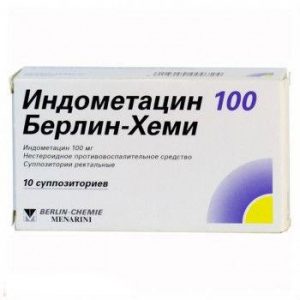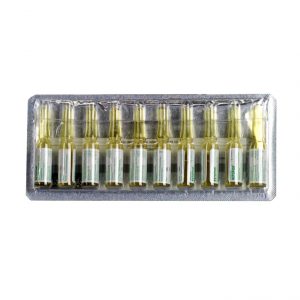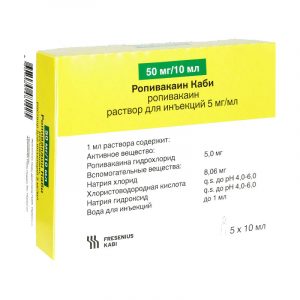Description
Description
Soluble white tablets, flat, with a circumferentially cut edge and a risk on one side.
Latin name
Solpadeine fast
Release form
2 pcs. – laminated strips (6) – packs of cardboard.
Pharmacological action
Combined antipyretic analgesic, contains a combination of two active ingredients: paracetamol and caffeine. It has an antipyretic and analgesic effect.
Paracetamol blocks COX in the central nervous system, affecting the centers of pain and thermoregulation (in inflamed tissues, cellular peroxidases neutralize the effect of paracetamol on COX), which explains the almost complete absence of anti-inflammatory effect.
The absence of influence on the synthesis of prostaglandins in peripheral tissues leads to the absence of a negative effect on water-salt metabolism (sodium and water retention) and gastrointestinal mucosa.
Caffeine stimulates the psychomotor centers of the brain, has an analeptic effect, enhances the effect of analgesics, eliminates drowsiness and a feeling of fatigue, increases physical and mental performance.
Indications
Headache
migraine
toothache
back pain
neuralgia
muscle and rheumatic pain
painful menstruation
sore throat
symptomatic treatment for colds and flu (symptomatic treatment for colds.
Contraindications
Severe liver dysfunction
severe renal dysfunction
arterial hypertension
glaucoma
sleep disturbance
epilepsy
children under 12 years of age
hypersensitivity to the components of the drug.
Caution is advised to use the drug for benign hyperbilirubinemia (including Gilbert syndrome), viral hepatitis, alcoholic liver damage, glucose-6-phosphate dehydrogenase deficiency, alcoholism.
Use during pregnancy and lactation
The drug Solpadein Fast contains caffeine. When taking caffeine there is a high risk of having a baby with a low body weight, the risk of spontaneous abortion.
Once in breast milk, caffeine can have a stimulating effect on a breast-fed baby.
Solpadein Fast should not be used during pregnancy and lactation (breastfeeding).
Composition
Per tablet:
Active ingredients:
paracetamol 500 mg
caffeine 65 mg.
Excipients:
sorbitol,
sodium saccharinate,
sodium bicarbonate,
povidone,
sodium lauryl sulfate,
dimethicone,
citric acid,
sodium carbonate.
Dosage and administration
Soluble tablets Solpadein Fast before oral administration should be dissolved in at least 100 ml (half a glass) of water.
Adults (including the elderly) and children over 12 years of age are prescribed 1-2 tablets. 3-4 times / day, if necessary. The interval between doses is at least 4 hours. Maximum one-time dOza – 2 tablets, the maximum daily dose – 8 tablets.
The drug is not recommended for more than five days as an anesthetic and more than three days as an antipyretic without prescribing and monitoring a doctor.
An increase in the daily dose of the drug or the duration of treatment is possible only under the supervision of a doctor.
Side effects of
In recommended doses, the drug is usually well tolerated.
Determination of the frequency of side effects: very often ( 1/10), often ( 1/100 and <1/10), infrequently ( 1/1000 and <1/100), rarely ( 1/10 000 and < 1/1000), very rarely ( 1/100 000 and <1/10 000). The following side effects were identified spontaneously during post-registration use of the drug. Paracetamol Allergic reactions: very rarely – skin rash, angioedema (Quincke’s edema), Stevens-Johnson syndrome, anaphylaxis. From the hemopoietic system: very rarely – leukopenia, thrombocytopenia, methemoglobinemia, agranulocytosis, hemolytic anemia. From the respiratory system: very rarely – bronchospasm (in patients with hypersensitivity to acetylsalicylic acid and NSAIDs). From the hepatobiliary system: very rarely – impaired liver function. With prolonged use in high doses, the likelihood of hepatotoxicity, nephrotoxicity and pancytopenia increases. Also, in cases of prolonged use in high doses, monitoring of the blood picture is necessary. Caffeine Possibly: dyspeptic symptoms (including nausea, epigastric pain), increased irritability, dizziness, sleep disturbances, tachycardia. With excessive consumption of caffeinated foods (including tea, coffee) while taking the drug, anxiety, anxiety, irritability, insomnia, headache, digestive system disorders, tachycardia, cardiac arrhythmia may occur. If any of the following side effects occur, you should stop taking the drug and consult a doctor immediately. Drug Interaction When administered regularly for a long time, the drug increases the effect of indirect anticoagulants (warfarin and other coumarins), which increases the risk of bleeding. Episodic intake of a single dose of the drug has no significant effect on the effect of indirect anticoagulants. The drug enhances the action of MAO inhibitors. Barbiturates, carbamazepine, phenytoin, primidone, ethanol, rifampicin, phenylbutazone, St. John’s wort preparations, tricyclic antidepressants and other inducers of microsomal oxidation increase the production of hydroxylated active metabolites, causing the possibility of severe liver damage with small overdoses of paracetamol (5 g or more). Microsomal oxidation inhibitors (cimetidine) reduce the risk of hepatotoxic action. Under the influence of paracetamol, the elimination time of chloramphenicol is increased 5-fold. Caffeine accelerates the absorption of ergotamine. Concurrent administration of paracetamol and alcoholic beverages increases the risk of hepatotoxic effects and acute pancreatitis. Metoclopramide and domperidone increase, and cholestyramine reduces the absorption rate of paracetamol. The drug may reduce the effectiveness of uricosuric drugs. overdose Symptoms caused by paracetamol: pallor of the skin, nausea, vomiting, anorexia, stomach aches in 1-2 days may show signs of liver damage (liver pain, increased fermentation, fermentation). Disruption of carbohydrate metabolism and signs of metabolic acidosis are possible. In adult patients, liver damage develops after taking more than 10 g of paracetamol. In the presence of factors that affect the toxicity of paracetamol for the liver, liver damage is possible after taking paracetamol in an amount of 5 g or more. In severe cases of overdose can develop encephalopathy, bleeding, hypoglycemia, brain edema, up to death. It is possible to develop acute renal failure with acute tubular necrosis, which is characterized by pain in the lumbar region, hematuria, proteinuria, with severe liver damage may be absent. There are reports of cases of heart rhythm disorders, pancreatitis. Treatment: if you suspect an overdose, even in the absence of pronounced first symptoms, it is necessary to discontinue the drug and seek immediate medical attention. Within 1 h after overdose, gastric lavage and enterosorbents (activated charcoal, polyfepan) are recommended. The plasma concentration of paracetamol should be determined, but not earlier than 4 h after overdose (earlier results are unreliable). Acetylcysteine administration within 24 h after overdose. The maximum protective effect is provided during the first 8 hours after overdose, over time the effectiveness of the antidote drops sharply. If necessary, acetylcysteine is injected into / in. In the absence of vomiting before the patient’s admission to the hospital, the use of methionine is possible. Need for additional therapeutic activities (further methionine administration, (in the introduction of acetylcysteine) is determined depending on the concentration of paracetamol in the blood, as well as the time elapsed after its administration. Treatment of patients with severe hepatic impairment 24 hours after paracetamol administration should be performed in conjunction with specialists at the toxicology center or specialist liver disease department. Caffeine-related symptoms: epigastric pain, vomiting, frequent urination, tachycardia, arrhythmia, CNS stimulation (insomnia, restlessness, agitation, anxiety, increased nervous-reflex excitability, tremor and convulsions). However, it should be borne in mind that the appearance of clinically significant symptoms of caffeine overdose when taken with this drug is always associated with severe liver damage on the background of paracetamol overdose. Treatment: There is no specific antidote. Treatment includes supportive activities such as copious drinking and maintaining vital indicators. Activated charcoal is recommended for 1 hour to 4 hours after overdose. In order to reduce the effects of caffeine overdose on CNS functions, it is recommended that sedatives be injected into / into. Storage conditions Store at a temperature not exceeding 25 ° C. Keep out of the reach of children. Expiration 4 years. Do not use after the expiry date stated on the package. dosage form dosage form tablets soluble




